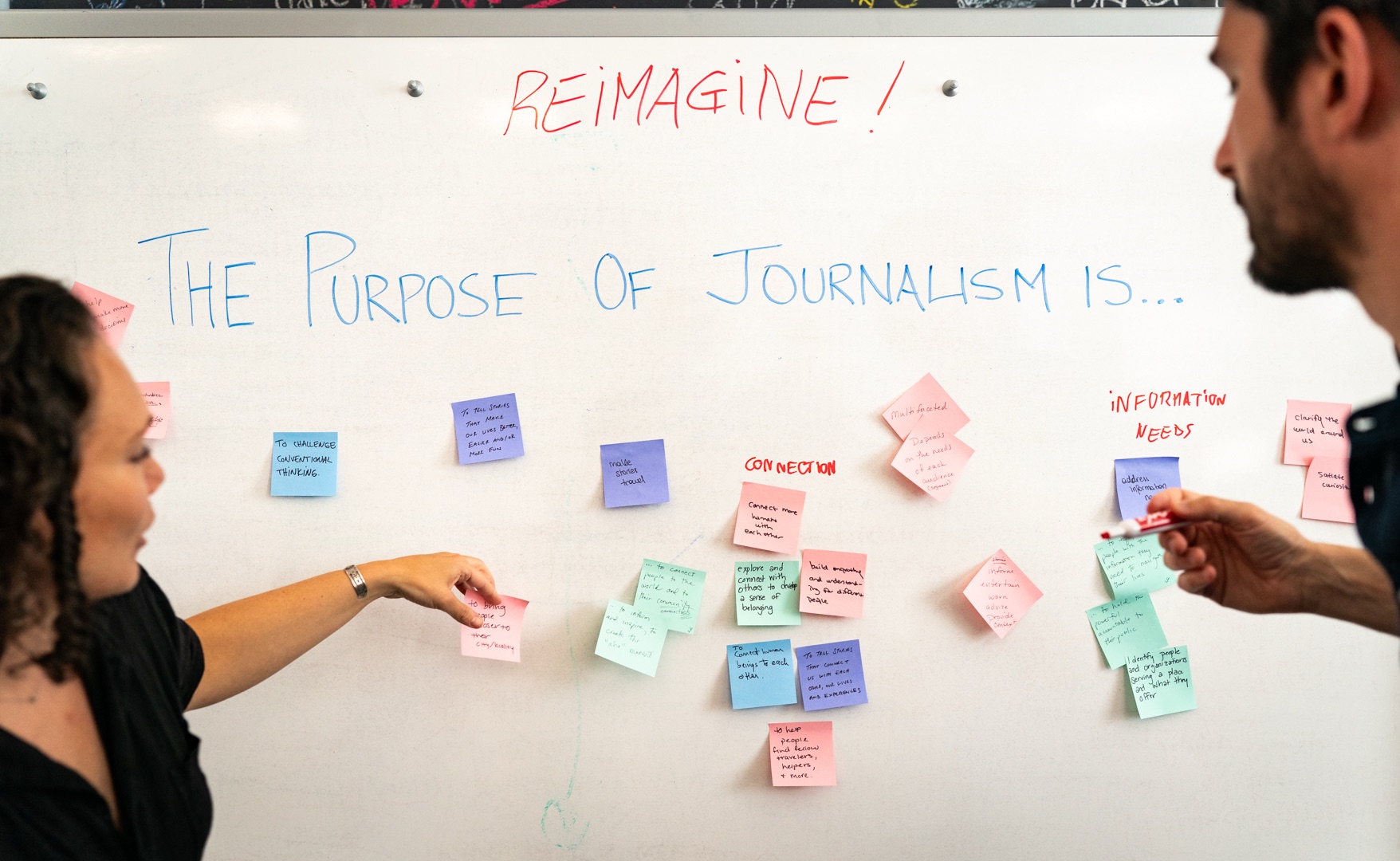One of Mozfest’s most prominent themes this year has been “Build + Teach the Web.” Throughout the keynotes and sessions, Mozilla has pushed its new initiative, Webmaker, as a rallying point for all of us interested in educating the world in becoming creators of the web rather than users.
It’s a great initiative. Nothing is more important for us as makers than getting more people onboard, especially in journalism. But journalism has a specific set of requirements that make teaching the web a much different and arguably much more difficult task.
Perhaps the best of Webmaker’s current available resources is its attempt at a Web Literacy Standard. It divides web literacy into three “strands”: Exploring, Building and Connecting. Each of these three strands have subsections, such as “Composing for the Web” under Building or “Open Practices” under Connecting. Everything in the standard is relevant and necessary for making the web.
But for journalists, I'd add at least one skill to the list. I have said often that journalists do not need expert programming skills; they just need web literacy. Now, upon seeing the most complete attempt at defining just what web literacy means, journalists still need yet another type of literacy: data literacy.
This does not mean statistics, or at least not the predictive statistics that you may come across in an academic statistics department. Journalists largely deal with populations, not samples. When we deal with data, we generally deal with all of it. More and more, everyday journalists need to deal with this data.
What would a data literacy standard look like? I hope to create a more complete attempt in the near future, but data literacy as it relates to the web requires at least a few skills that come to mind:
- Working with spreadsheets. Often data comes in a format that lends itself to a spreadsheet. Journalists need to know not only how to read and write in them, but also how to crunch some numbers and transform the data to find the story in datasets.
- Web scraping. Too much data is not released in a usable format, and it too often takes web scraping skills to extract it. More difficult tasks will always be handled by news devs, but empowering journalists with basic web scraping skills will allow newsrooms to deal with more data.
- Data cleaning. Data is never perfect and it's often filthy. Journalists need to know what to do about it, or any data project they do will be misleading and incorrect.
This is far from a complete list of data skills that journalists need. But that list also does not exist in any concise format (certainly, the Data Journalism Handbook is a great longform resource), and if we want to emphasize to working and future journalists the skills they need, we need something concrete to point to. For web skills, Mozilla’s Web Literacy Standard is a great resource and starting point. But journalists need to consider what data skills we all need. Feel free to send me suggestions on Twitter.
About the author





